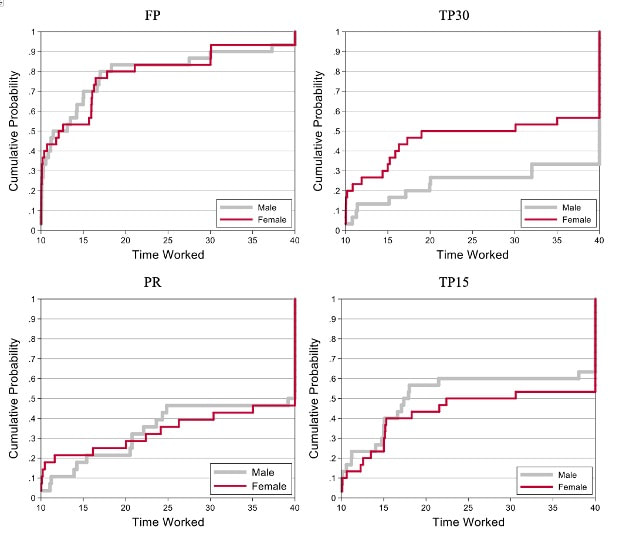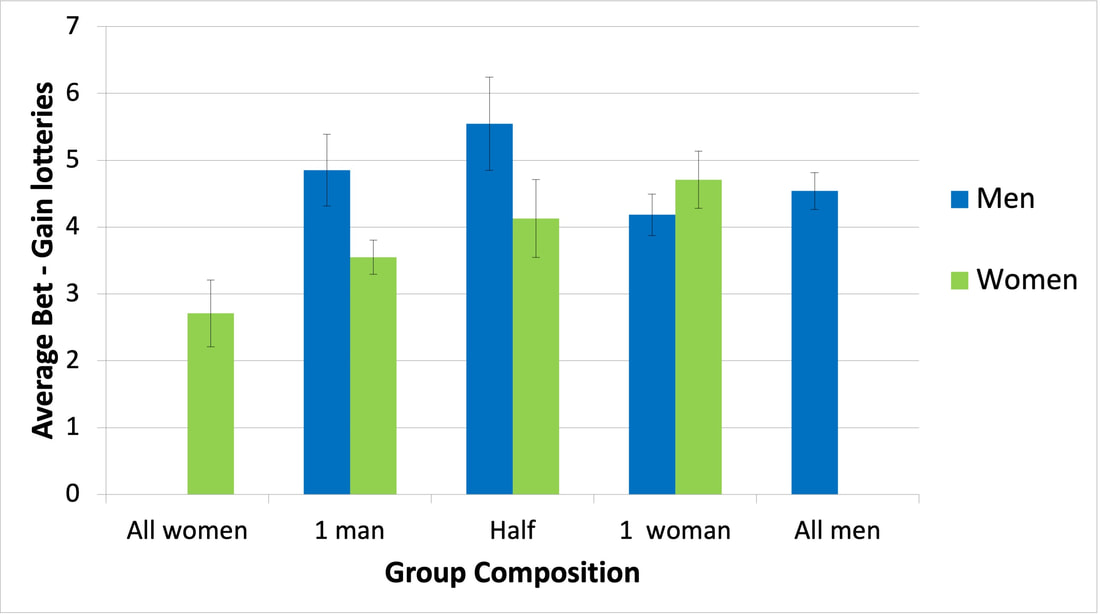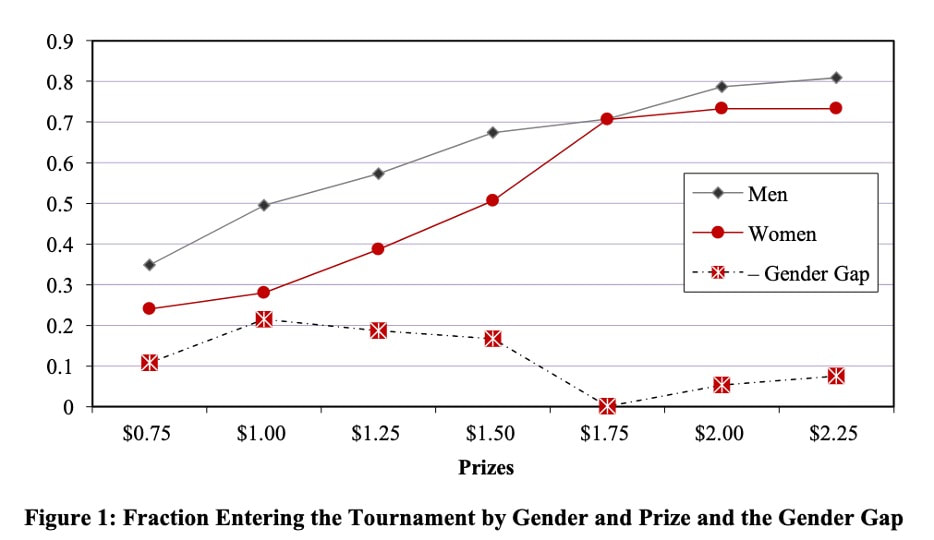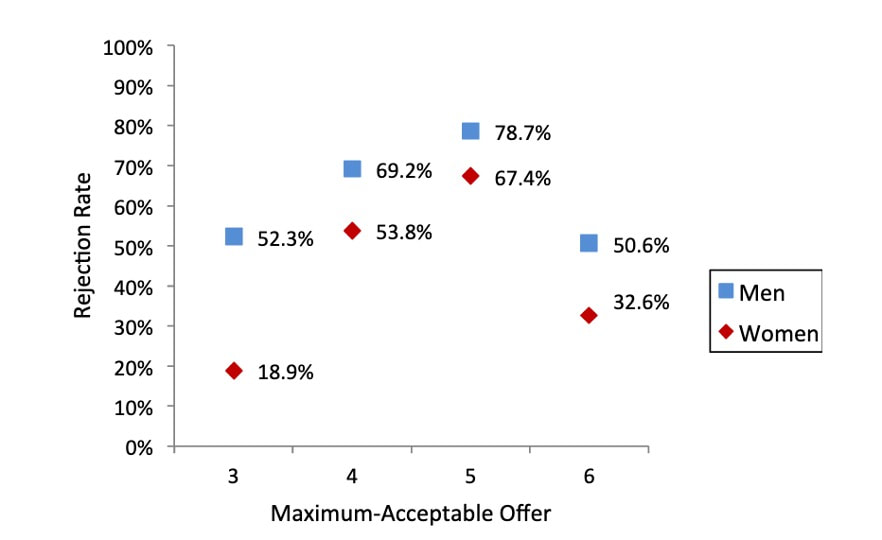Gender differences
Project descriptions, links to papers and presentation slides
Workplace competition extends work time
Elite careers are typically male dominated and entail workplace competition and long work hours. We test the underlying mechanisms for why this gender inequality exists using field experiments where workers determine work duration. Both men and women work longer when a tournament prize is added to the pay of the highest performing worker in their group. However, despite our design eliminating outside obligations, men stay significantly longer than women in the high-prize tournament treatment. Men are also more likely than women to choose tournament-based overtime compensation, over a wage rate, for large prizes. This reveals direct and indirect mechanisms through which high-stakes workplace competition drives gender inequality. Directly, men are more likely to enter and win. Indirectly, tournaments raise work hours, and women face greater time constraints. Link to paper Miller, Amalia, Ragan Petrie and Carmit Segal, “Effects of Workplace Competition on Work Time and Gender Inequality,” forthcoming, ILR Review |



